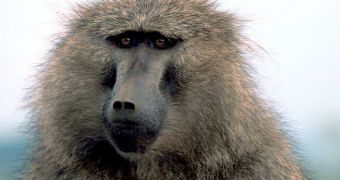Amid fears that environmental and animal rights groups might have retaliated violently, administrators and other officials running the Oklahoma State University (OSU) decided to pull the plug on an anthrax-vaccine study. The investigation would have claimed the lives of dozen of baboons, which would have been used until a potent solution to cure the disease was found. The research project had already received funds from the US National Institutes of Health (NIH), and was scheduled to begin soon, when the OSU President, Burns Hargis, vetoed the initiative this October.
The university's animal-care committee had already accepted the study this September, so the proposal was then sent to the biosafety committee, which was to decide on it as soon as possible. But Hargis stepped in, calling the investigation “controversial” and vetoing its approval. The new project was to be led by expert Shinichiro Kurosawa, who is based at the Boston University School of Medicine, in Massachusetts. The scientist wanted to run the experiment at OSU because the university had the necessary containment and biosafety facilities that were required when handling anthrax and other dangerous chemical and biological agents.
“As guest scientists at OSU, we are obliged to follow their policies, and it is unfortunate that we cannot fully complete our research there at this time,” Kurosawa reveals, quoted by Nature News. His team was to include experts from the Oklahoma Medical Research Foundation, the University of Oklahoma in Norman, and the University of Chicago, in Illinois. The main goal of the investigation was to determine the chemical pathways that anthrax used to infect the body, and also to look for possible ways of stopping this from happening – basically, a vaccine.
Speaking about one of the main reasons that led to the cancellation of the research, OSU Vice-President of Research Stephen McKeever said that the university's president might have been right to suspend the work at the moment, considering that more than 124 animals had been killed during the study. “There are regrettably some violent acts committed by animal-rights groups, and the president felt we should take our breath here and not do this project just yet,” McKeever explains.
The trend is not unique, and experts around the country area deal with an increased pressure from activist groups. California is worst off, with two firebombings having already taken place at university campuses in the state. “It is changing the kind of work people will do in the future. If students come to me interested in primate research, I would tell them to think about other things,” University of California neurobiologist Dario Ringach says.

 14 DAY TRIAL //
14 DAY TRIAL //